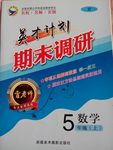题目内容
C
American teens are setting an example for their parents through their volunteer work,
according to a new poll by Harris Interactive. The random national telephone survey released this week by the charity World Vision found that more teens volunteer to support a charitable cause(56 percent) than have a part-time job(39 percent).
Parents said 82 percent of the teens in their lives do something to support charitable causes, including volunteering, recruiting others to a cause, wearing a button or T-shirt or donating money. Forty-six percent of the adults surveyed said they volunteer their time, but they also take credit for inspiring their children to volunteer.
The Harris Interactive poll was conducted in the United States between Jan 29 and Feb 2 among 2,003 adults. Sara Johnson, a teacher who advises students at a private school in a Chicago suburb, says she's seen a resurgence of teen involvement in social causes since President Barack Obama was elected in November.
The Harris Interactive survey found a quarter of teens have become more involved in charitable causes or organizations as a result of the economic downturn, but the economy has also led to cuts in allowances, and has teens working more hours at a paying job.
Unlike many public high schools across the nation, Illiana Christian does not require its students to clock public service hours. Senior Melissa Martin said some kids are too busy with other commitments like sports and music, but most of her classmates do volunteer.
Alynn Woodson, director at Habitat for Humanity International, said she has noticed a new enthusiasm among teen volunteers for the organization. Habitat for Humanity celebrates the 20th anniversary of its alternative spring break program this year and is expecting more than 12,000 young people to help build homes for low-income people around the nation.
63.What’s the main idea of the passage?
A.It is surveyed that more teens volunteer to support a charitable cause nowadays.
B.Illiana Christian asks its students to clock public service hours strictly.
C.American parents are setting an example for their children through their volunteer work.
D.The financial crisis led to the employment of American parents.
64.The underlined word “resurgence” in the third paragraph most probably means .
A.replacement B.recall C.review D.return
65.Which of the following statements is NOT TRUE according to the passage?
A.About 12,000 young people will help build homes for low-income people around the nation.
B.In Illiana Christian, teens are busy with sports and none of them do volunteer.
C.The majority of the teens in their lives do something to support charitable causes.
D.Forty-six percent of the adults surveyed said they volunteer their time.
66.We may infer from the passage that .
A.American teens prefer charitable causes to attending school.
B.People noticed a new enthusiasm among teen volunteers for the organization.
C.The majority of the adults are not willing to volunteer their time.
D.Habitat for Humanity celebrates the 20th anniversary this year.
63---66 CCDA

 名师点拨卷系列答案
名师点拨卷系列答案 英才计划期末调研系列答案
英才计划期末调研系列答案